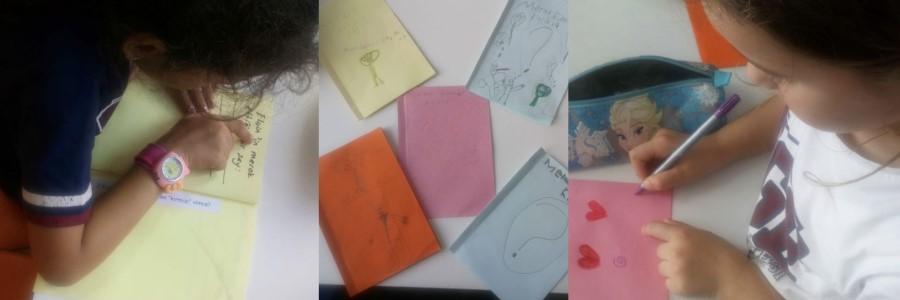What was the Problem?
Children carry practices such as asking, researching and wondering, which they cannot fulfill enough at home, to their schools. It is difficult for children to develop a sense of curiosity at school if this sense is not supported or encouraged at home. So, "How can we ensure that parents become examples for their children in terms of curiosity?"
Solution

In the problem-solving process where design-oriented thinking methodology was applied, it was observed that adults knew they were role models for their children in many subjects, but they were not aware of it when it comes to curiosity. It was concluded that for curiosity to be sustained in school, it should be supported and encouraged by parents in the home environment. For this purpose, the "Curious Adults Club" was developed to allow parents to learn and explore together with their children.
Prior to the activity, the teacher sends an informative letter or e-mail to the parents. The students prepare a fun curiosity book for themselves or the teacher prepares and distributes it to them. In their books, students write a question every day and take it to their parents. The parents research and discuss with the child the question of that day. They then write the findings of their research in the book. According to the class size and the time the teacher can devote to the activity every day, all students or students who volunteer read the question and the answer in the classroom. In this session, shared questions and answers are discussed together. Each student writes a new question in his/her book with the inspiration they receive from the shared questions. At the end of the activity, the teacher organizes a session with parents and students on the sense of curiosity. Together they decide whether the activity continues or not.
Its Effect
In this process, it was observed that the students asked more questions and received more positive responses when they asked questions. Also, the parents developed a positive perception of their children asking questions.
Contributors
Özlem Bayat (Classroom Teacher), Hasan Dağ (Psychological Counselor), Mahmut Bektaş (Psychological Counselor), Şebnem Ayna (Turkish Teacher), Kıymet Kıvılcım (Preschool Teacher)






